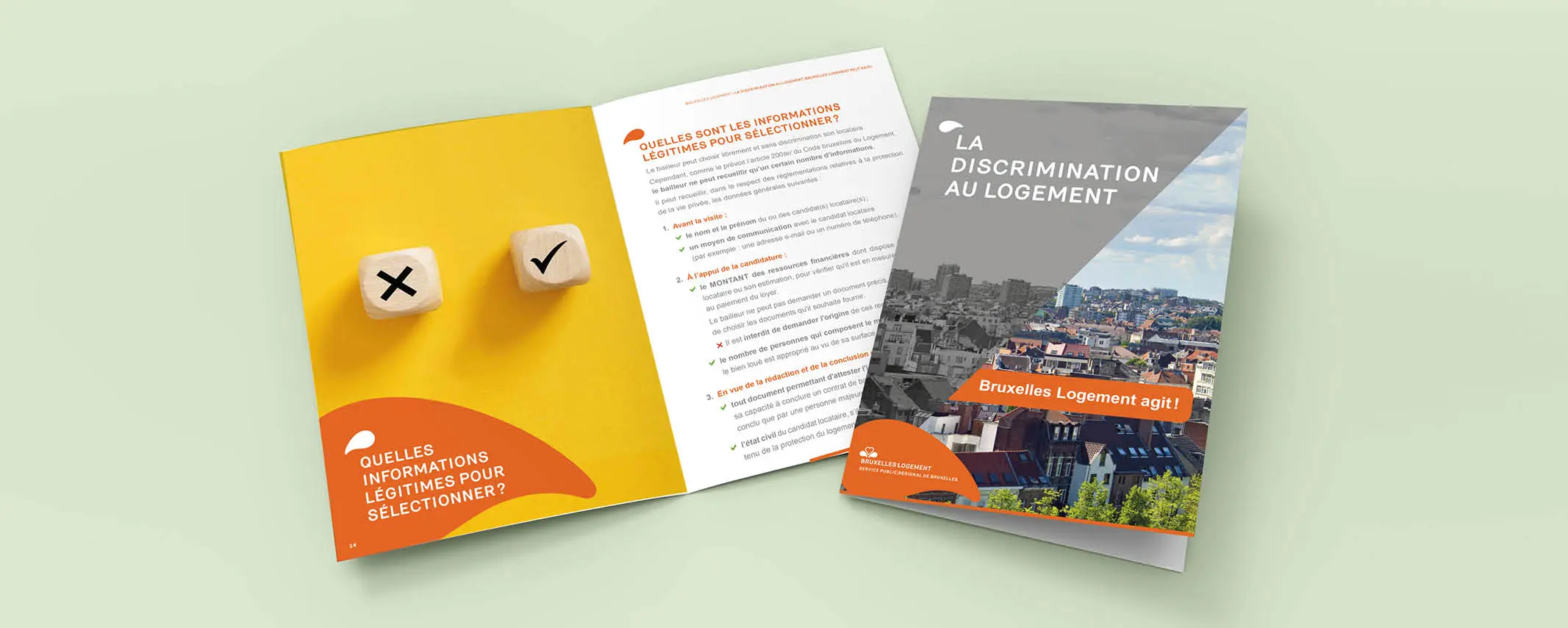Strengthening anti-discrimination instruments in the rental market
Access to housing is a fundamental right. Yet too many people in Brussels are denied a rental property due to their origin, gender, disability, age, social status or other legally prescribed criteria. The Brussels Parliament has given the go-ahead for instruments to step up the fight against discrimination.

By adopting an Opens in new windoworder, supplemented by three implementing decrees, the Brussels Parliament has given the green light to instruments designed to step up the fight against discrimination.
Determining what information can be requested from prospective tenants
The Opens in new windownew regulations determine what information and documents may be requested from prospective tenants, at three different times: when making an appointment to view the property, when applying as a tenant and before signing the lease.
- To make an appointment to visit the rental property, prospective tenants may be asked for their full name, email address or telephone number.
- On receipt of an application, the prospective tenant may be asked how many people make up the family. In the case of joint income, only the amount can be requested, not the origin of the income. The applicant can choose how to demonstrate the amount of the joint income.
- When the applicant is accepted as a tenant, the lease contract to be signed is completed with the tenant's identity and marital status. This is why the landlord asks for proof of identity and whether the tenants are legally cohabiting or married.
Are you a landlord or real estate agent? Use the standardised application form for renting a property, containing all the legal information and supporting documents that a landlord may request from a prospective tenant:
Downloads (only available in French and Dutch)
Discrimination testing by the Regional Housing Inspectorate
Inspectors from the Regional Housing Inspectorate are authorised to carry out "mystery shopper" and situation tests. Proactive testing aims to detect discrimination by private and public landlords and by real estate agents.
If the real estate agent accepts the request, they are demonstrating a prohibited discriminatory practice.
These tests compare whether test and control profiles are treated similarly or unequally.
Opens in new windowThe Regional Housing Inspectorate can call on associations working to promote integration through housing (AIPL), as well as associations in the field of performing arts.
New "protected criteria'
Discrimination occurs when one person is treated less favourably than another based on one or more protected criteria, provided that the situation of both people is comparable and there is no objective justification. Examples of protected criteria include sex, race, colour, ancestry, age, political conviction and state of health.
The list of protected criteria has been extended to include residence status, trade union conviction, family responsibilities, adoption, co-parenthood and paternity.
In the brochure "Discrimination in Housing", which explains in detail the Region's anti-discrimination legislation, tenants, landlords and real estate agents can find advice on how to avoid discrimination: